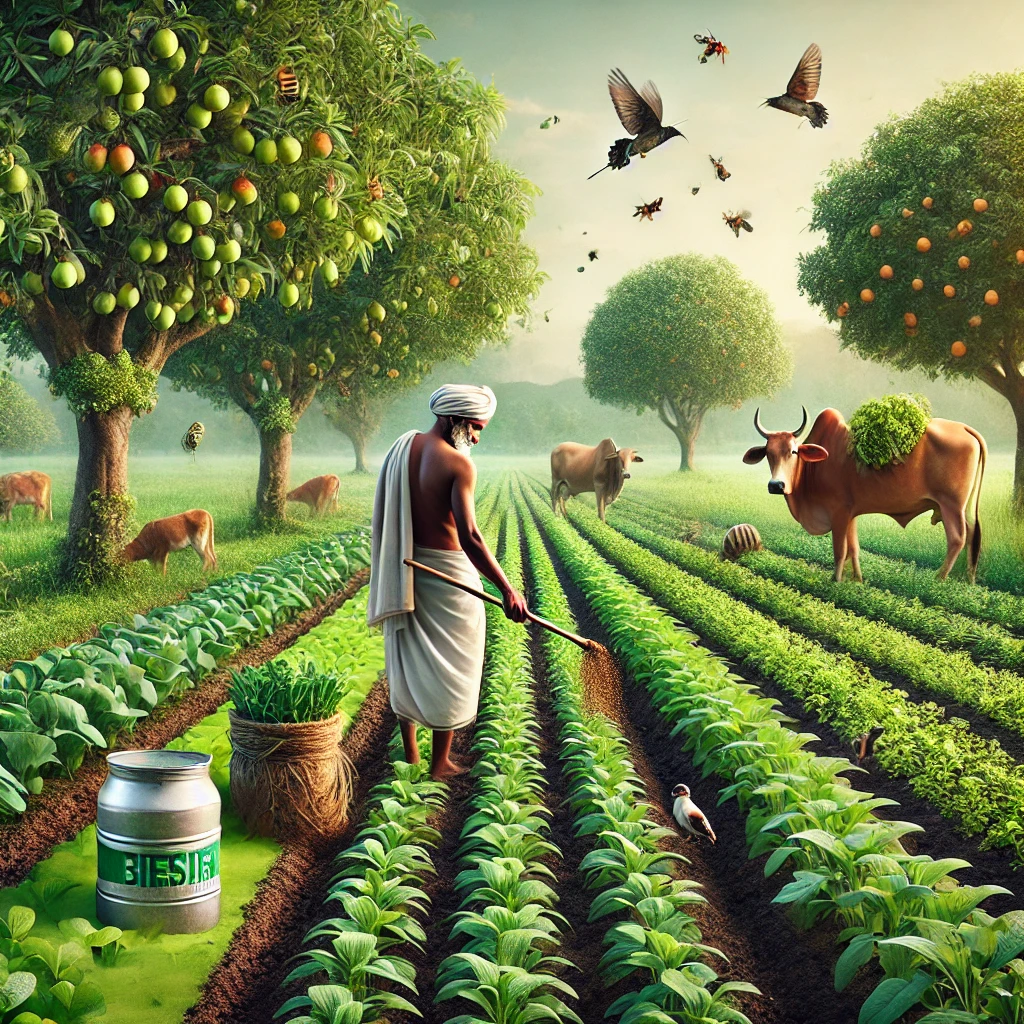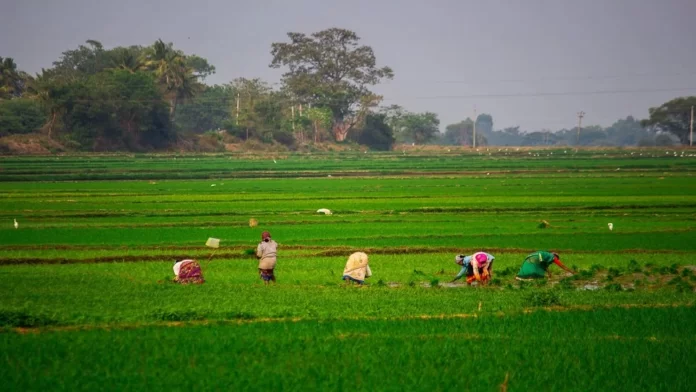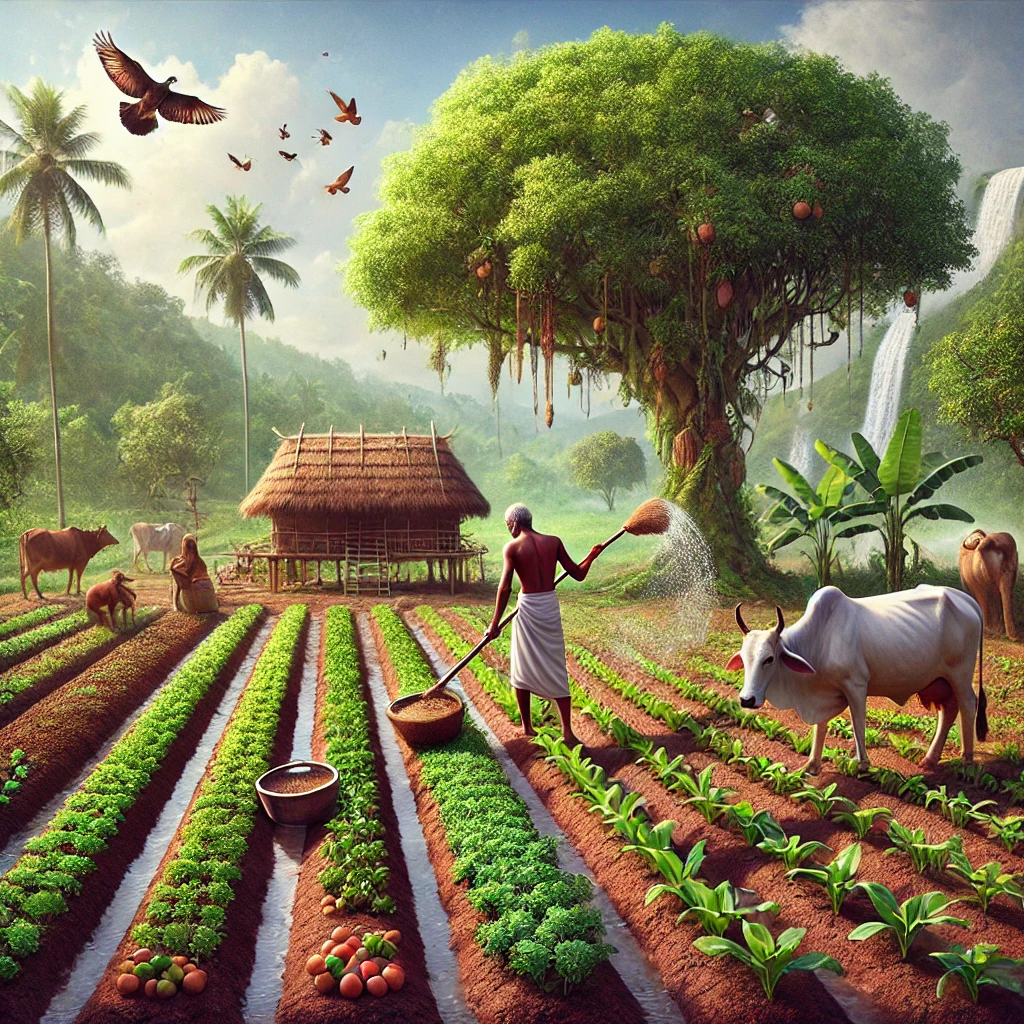Veesh Mukt Farming – Embracing Nature’s Wisdom
Have you ever wandered through a forest in summer and marveled at the abundance of wild mango, tamarind, gooseberry, Jamun, jackfruit, and other fruit-laden trees? Year after year, without intervention, these trees thrive—offering their bounty to birds, animals, and insects alike.
In the heart of Indian Vedic culture lies a deep reverence for the laws of nature, a philosophy seamlessly woven into the fabric of traditional agriculture. Vedic farming is not merely about cultivation—it is a harmonious alignment with nature’s intelligence, where every practice resonates with the rhythm of the cosmos. This ancient yet timeless approach fosters self-sustaining ecosystems, ensuring the well-being of both the land and its caretakers.
Vedic Agriculture: A Holistic Approach
Vedic and Natural Farming mirror the pristine balance found in forests, where life flourishes effortlessly. This method transcends conventional agriculture, offering a self-sustaining, toxin-free alternative rooted in the principles of zero-budget natural farming.
Natural Farming vs. Organic Farming
While both natural farming and organic farming promote chemical-free cultivation, key differences set them apart:
-
Both methods discourage the use of synthetic fertilizers and pesticides, preserving soil health and biodiversity.
-
Both emphasize indigenous seeds, native crop varieties, and traditional farming techniques.
-
Natural and organic farming rely on homemade, non-chemical pest control methods, enhancing the resilience of crops.
Core Features of Zero-Budget Natural Farming (ZBNF)
-
Minimal Investment, Maximum Yield – By leveraging local farm resources, ZBNF ensures commercial-scale farming at almost zero cost.
-
98% of Plant Nutrition is Free – Plants derive the majority of their nutrients from air, water, and sunlight—only 2% comes from the soil, which can be enriched naturally.
-
Soil Health & Mulching – Soil is never left bare but is covered with organic mulch, fostering microbial life and humus formation.
-
The Role of Desi Cows – Cow dung and Gomutra (urine) from native Indian breeds are considered the purest forms of microbial fertilizers.
-
Jeevamrutha: The Elixir of Soil – Instead of chemical fertilizers, a farm-made bio-culture called Jeevamrutha is added, derived from a small quantity of desi cow dung and urine to stimulate soil microflora.
-
Natural Pest Control – Homemade pesticides like Dashparni Ark and Neem Astra protect crops without harming the environment.
-
Weeds as Allies – Instead of removing weeds, they are used as natural mulch, enhancing soil fertility. Additional mulch sources include straw, hay, leaves, wood shavings, rice husks, and crop residues.
By embracing Veesh Mukt Farming, we return to nature’s wisdom, breaking free from chemical dependency while preserving soil health, biodiversity, and sustainability. FAIDA Bharat envisions an agriculture revolution that revives Vedic principles, ensuring a future where farming is not just a profession but a sacred duty—one that nourishes both the earth and its people.
This is more than just a farming method; it is a pathway to holistic living, self-reliance, and environmental harmony—one that Bharat must champion as Vishwa Guru in the world of sustainable agriculture.














